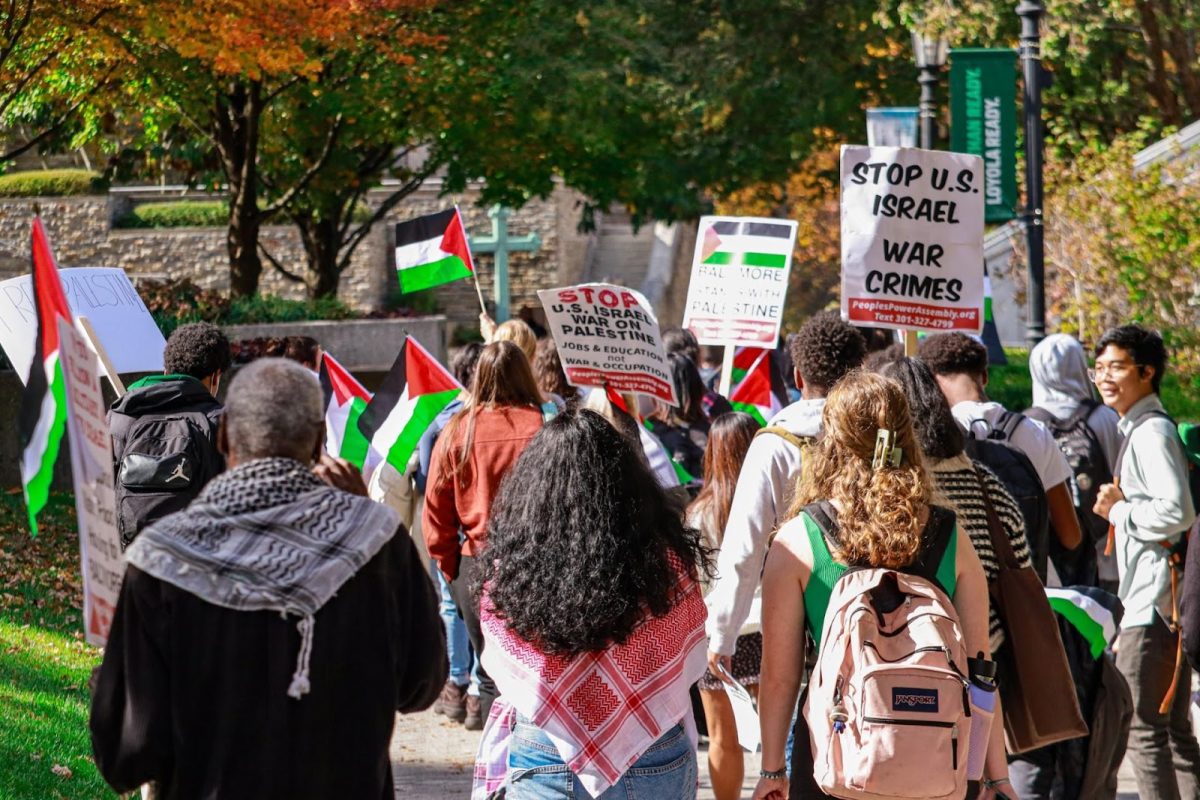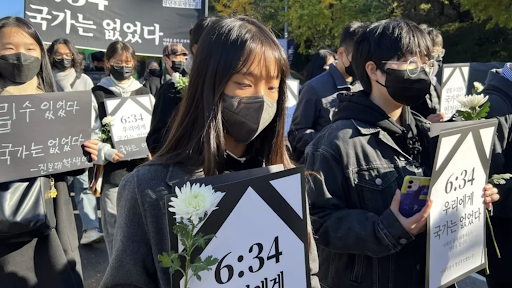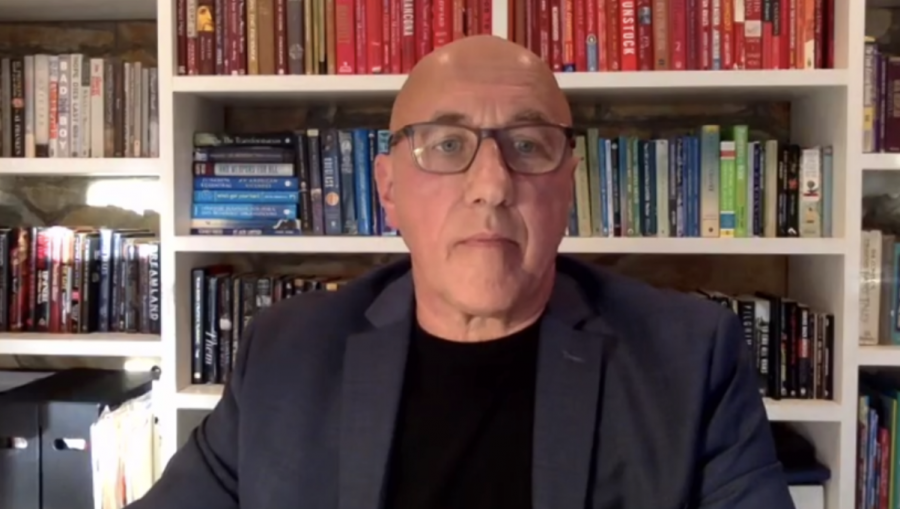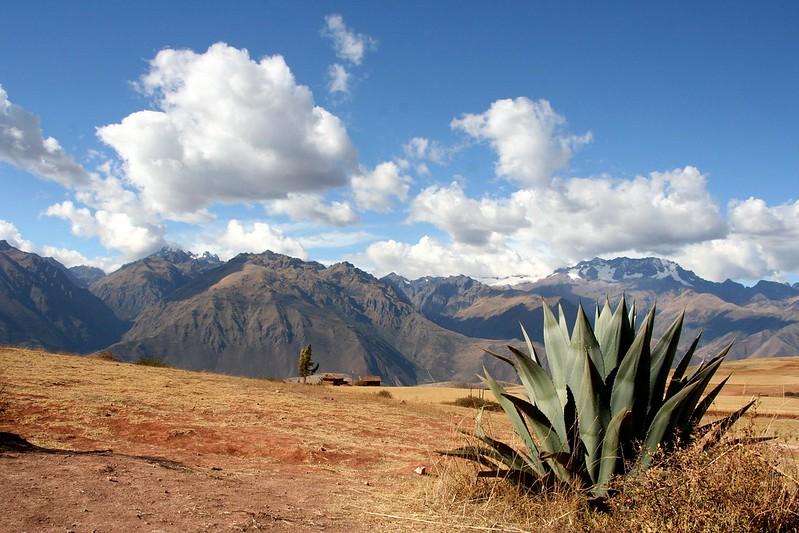The conflict in Gaza continues on the battlefield, as does the heated debate at universities around the world, including Loyola.
Raneem Odeh ‘26, a student who lived in the West Bank, helped organize the protest on campus on Oct. 30, approximately three weeks after Hamas’ deadly attacks on Israeli citizens. She is surprised that people are supporting Israel’s response.
“I was like ‘people are really still defending this?’ 10,000 civilians and you’re still being like ‘oh it is self defense.’ How are we still doing that? It is crazy,” she said.
Rabbi Andy Gordon of the Bolton Street Synagogue, just blocks away from campus, gave a perspective from the Jewish community in Baltimore. He says many in the Jewish community are deeply upset about the ongoing conflict.
“The attack on Oct. 7 was the largest massacre of Jews in a single day since the Holocaust. There are over 240 women, men, children and the elderly that are held captive by Hamas terrorists. Many of the Jewish community are very fearful and worried about rising threats of antisemitism and views of anti-zionism here in the United States,” he said.
As of Nov. 13, over 11,000 people have been killed in Gaza, including 4,500 children. Over 1,400 Israelis have been killed, most of whom died from Hamas’ surprise assault on Oct. 7.
When asked how peace could be achieved or what peace even looked like, Odeh suggested that “peace” was not the right word.
“We want justice, not peace. You can be a peaceful slave, you can be peacefully oppressed, but you can’t be justly oppressed. There is no justice in oppression, but there can be peace in it,” she said.
Dr. Michelle Gawerc, Associate Professor of Sociology at Loyola, teaches a class on Israel-Palestine: Conflict Narratives, Media Framing, and Peacebuilding and has been involved for over 25 years with joint Palestinian and Israeli peace initiatives. In terms of what needs to be done to ultimately achieve peace, she had her own suggestion.
“Peace is often defined for Palestinians as freedom, equality, justice, and dignity. For Israelis, it’s often understood as security. These are all important values, and I think a true peace will require that all of the above are met for both peoples. Moreover, as peace and conflict resolution studies suggest, a sustainable peace will require an end to all forms of violence—physical, structural, and cultural,” she said.
Gawerc also commented on what the United States government should be doing differently in terms of the Israeli-Palestinian conflict.
“Be an even broker; support a just solution to the conflict—one that meets the basic human needs of both peoples. Once a just solution is agreed upon by the parties, pressure the parties to live up to it. Demand it! Stop supporting structures of violence—including funding the current war. Insist upon the dignity of both peoples caught up in this more than 100 year-long conflict, 56 year-long military occupation, and 16 year-long siege,” Gawerc said.
The House passed a $14.3 billion bill to send support to Israel and President Biden asked for a $106 billion support bill for Ukraine, Taiwan, and Israel. Biden also visited Israel, voicing his unwavering support.
Jake Taylor ‘25, the newly elected Town Commissioner of Bel Air and President of the Loyola College Republicans on campus, supports the United States’ actions so far.
“The overall policy is solid. I don’t support and have never supported American boots on the ground in Israel, this is the fight of the IDF, this is their fight, but we have a vested interest in helping them win. I would like to see the United States government continue to do work on that,” he said.
Taylor affirmed his support for Israel and gave his opinion on what solution would be best for the region.
“The two-state solution, if it could be achieved, would absolutely be the best, but I think practically speaking, the only way we can solve this is a one state solution. Now, that doesn’t mean through military occupation, that means through democratic means,” he said.
The two-state solution would create independent states of Palestine and Israel. This is the solution that has been debated since Israel’s formation in 1948. Taylor’s suggested one-state solution would have Israel annex Gaza and the rest of the West Bank, and Palestine would cease to exist.
But another Palestinian student, Emmy Grandon ‘27, pointed out that peace may not be as defined and the focus should be elsewhere.
“I don’t know what peace would look like. At the moment, the most important thing to do is to educate yourself on how to fight what is going on in terms of breach of international law and humanitarian rights,” she said.
Grandon also noted that she felt Israel’s response has been disproportionate and unjustified. Despite this, she still urged both sides to find a common ground.
“It is important to check in on everyone around you, including your Arab friends, your Jewish friends, and your Israeli friends, because it is a really loaded issue that is causing people to struggle. Just remember these are all humans,” Grandon said.















































































































